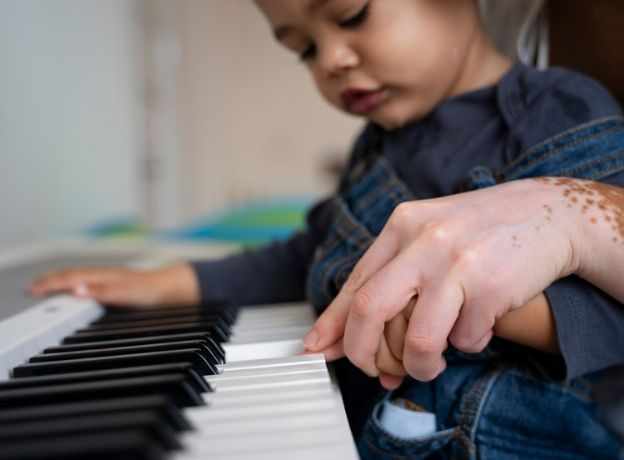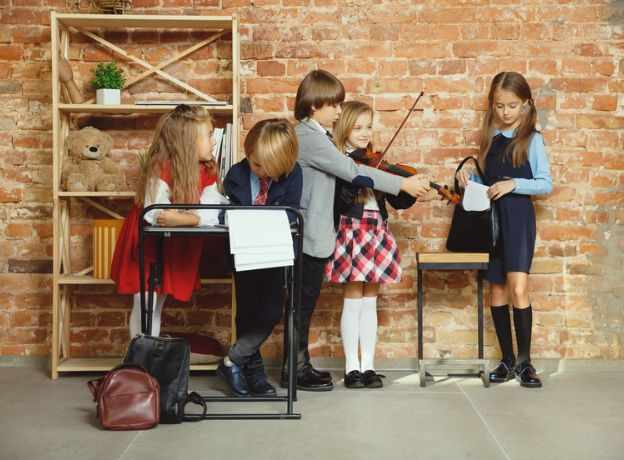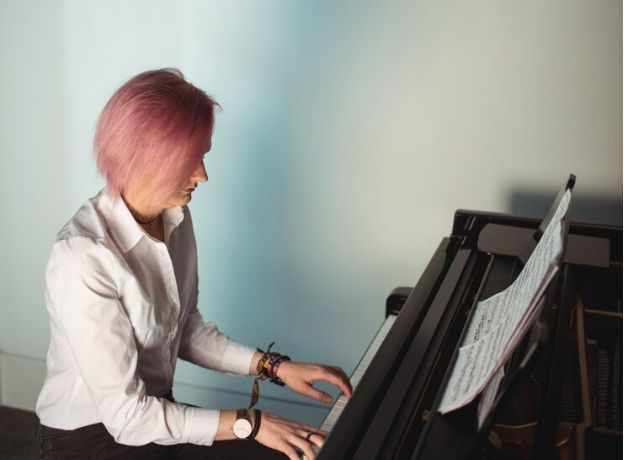
When parents sign their children up for piano lessons, they often think about the joy of hearing their child play a song or the possibility of them developing a lifelong hobby. But learning the piano offers far more than just musical skills. It provides benefits that extend into many areas of a child’s development, from cognitive growth to emotional resilience. Here’s a closer look at how piano lessons shape young minds in ways that go beyond music.
Boosting Brain Development
Learning to play the piano is like a workout for the brain. Studies have shown that children who take piano lessons tend to perform better in math and reading compared to those who don’t. The reason? Playing the piano requires kids to recognize patterns, understand rhythm, and use both hands independently—all of which enhance problem-solving skills and critical thinking. Reading sheet music also strengthens memory and concentration, skills that are useful in school and everyday life.
Improving Coordination and Motor Skills
Playing the piano helps kids develop fine motor skills and hand-eye coordination. Their fingers need to move independently while their eyes follow the music, and over time, this improves dexterity. This kind of coordination is not only beneficial for playing an instrument but also for activities like writing, drawing, and even sports.
Encouraging Patience and Discipline
Unlike many activities where results come quickly, learning the piano takes time and effort. Children must practice regularly, work through challenges, and gradually improve their skills. This teaches them patience and persistence—valuable traits that will help them in school, sports, and other hobbies. They learn that effort leads to progress, an important lesson they can apply in many areas of life.
Boosting Confidence and Self-Esteem
There’s a special kind of pride that comes with mastering a new song or performing in front of others. Piano lessons give children the opportunity to set goals, work toward them, and experience the satisfaction of success. Whether it’s performing at a recital or simply playing a tune for family members, these small achievements help build confidence and encourage kids to believe in their abilities.
Strengthening Emotional Well-Being
Music has a way of expressing emotions that words sometimes cannot. For kids, playing the piano can be a wonderful emotional outlet. Whether they’re feeling happy, frustrated, or even a little sad, music allows them to channel their feelings in a creative and healthy way. This emotional connection to music can provide comfort and reduce stress, making piano lessons not just a skill-building activity, but also a form of self-expression.
Enhancing Social Skills
While playing the piano can be a solo activity, it also provides plenty of opportunities for social interaction. Group lessons, recitals, and even playing duets with a friend or teacher help kids learn how to collaborate and support one another. They develop listening skills, learn to take constructive feedback, and gain experience performing in front of an audience—all of which contribute to better communication and social confidence.
A Lifelong Skill and Source of Joy
One of the best things about learning the piano is that it’s a skill that stays with children as they grow. Even if they don’t pursue music professionally, they will always have the ability to sit down at a piano and play. This can be a great source of relaxation and personal enjoyment throughout their lives. Plus, having a musical skill is something that can bring people together, whether it’s playing at family gatherings or joining a band later in life.
Conclusion
Piano lessons for kids offer so much more than just music education. They help children develop cognitive skills, improve coordination, build patience, boost confidence, and find a healthy emotional outlet. They also foster social skills and provide a lifelong source of joy. Whether your child becomes a concert pianist or simply enjoys playing for fun, the lessons they learn at the piano will benefit them in countless ways. So, if you’re considering signing your child up for piano lessons, know that you’re giving them a gift that extends far beyond the music itself.





Write a comment ...